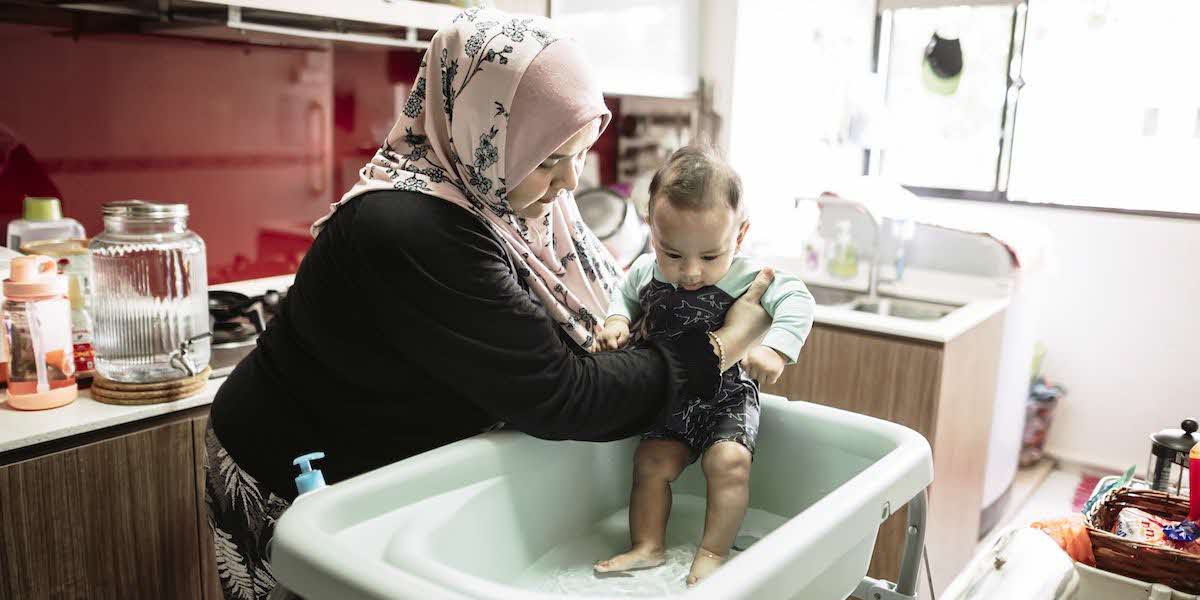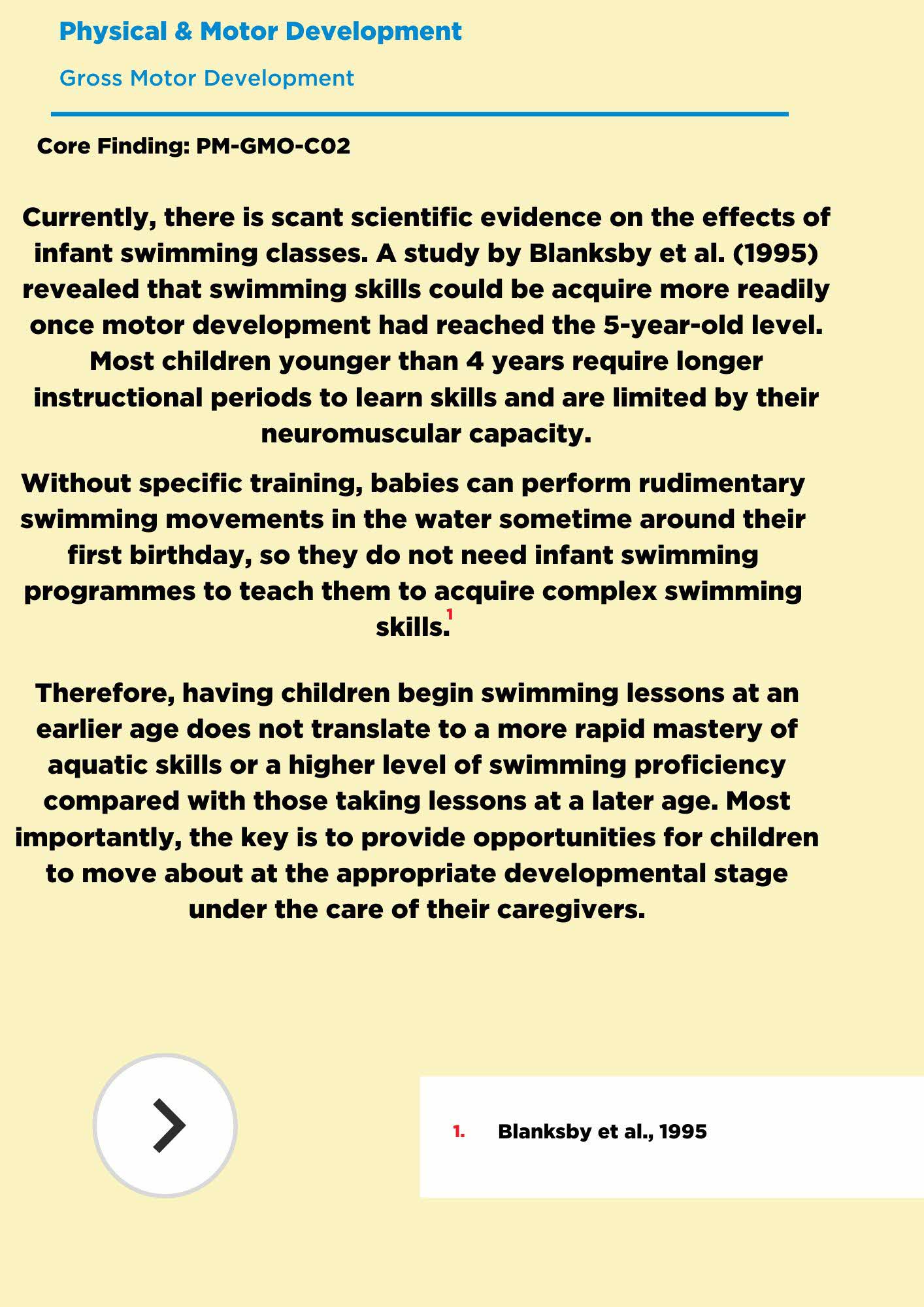Photos taken in collaboration with Matthias Chong
When we’re looking for respite from Singapore's hot weather, bringing your children swimming is a great idea to cool them down.
Swimming is also a fun thing for your child to do, and brings multiple benefits such as improved physical fitness and coordination. Most importantly, knowing how to swim is a vital skill to master so that our children can remain safe in and around water.
The question on most parents’ minds is when their children can start learning to swim. In fact, some babies begin to learn how to swim from as early as three months old. Is it true that the earlier babies start swimming, the better it is to facilitate their developments?
JUST KEEP SWIMMING?
There is currently no evidence that infant swimming programs for babies under one years old lower their drowning risk.
Infants this age may show reflex "swimming" movements but can't yet raise their heads out of the water well enough to breathe.
Rather than swimming classes, parents who want to expose their little ones to a water environment can enrol in parent-child water play classes to help the infants get used to being in the water. It is also a fun bonding activity for both parents and babies.
According to American Academy of Pediatrics, children generally are not developmentally ready for swimming lessons until after their fourth birthday. Studies reveal that swimming skills can be more easily learned once children achieve the motor development of a five-year-old.
That is why most children under four need longer instructional periods to learn how to swim as they are limited by their limited motor development.
As such, having children begin swimming lessons at an earlier age does not mean that they will learn how to float in water or be able to swim more proficiently compared to those taking lessons at a later age.

THERE ARE OTHER WAYS TO GET MOVING
For younger children, swimming may not be the most appropriate way of developing their gross motor skills.
The key to developing these skills is to provide opportunities for young children to move about under the supervision of their parents or caregivers. To boost different aspects of gross motor development, children need to be stimulated through various relevant activities.
Even though infant swimming classes have captured the attention of parents wanting the best possible developmental environment for their children, much needs to be done on the research side. Parents need to be realistic with their expectations when sending their infants to infant swimming classes.
So, if you were thinking of raising the next Joseph Schooling, save the swimming lessons for when your baby is a little older.
In the meantime, there are plenty of other ways to have fun with water!
